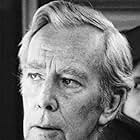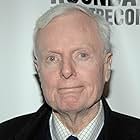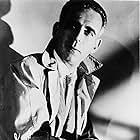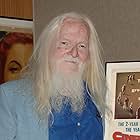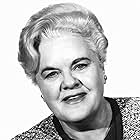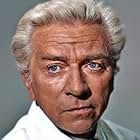Woodrow Wilson
- Episódio foi ao ar 14 de fev. de 1965
- 1 h
AVALIAÇÃO DA IMDb
9,2/10
7
SUA AVALIAÇÃO
Adicionar um enredo no seu idiomaIn 1916 Woodrow Wilson nominates Judge Louis D. Brandeis to the US Supreme Court. As a Jew and as a judge who has stood up to special interests, Judge Brandeis faces intense opposition.In 1916 Woodrow Wilson nominates Judge Louis D. Brandeis to the US Supreme Court. As a Jew and as a judge who has stood up to special interests, Judge Brandeis faces intense opposition.In 1916 Woodrow Wilson nominates Judge Louis D. Brandeis to the US Supreme Court. As a Jew and as a judge who has stood up to special interests, Judge Brandeis faces intense opposition.
Fotos
Enredo
Avaliação em destaque
Over the years many would-be appointments to the U.S. Supreme Court have ended in controversy. Just think of the names of Bork, Carswell, Haynsworth...you can find others. Some actually successful appointments were disasters. Abe Fortas, for example, was a brilliant lawyer and a promisingly good jurist, but he was corrupt. His tenure ended in a black eye for Lyndon Johnson, who appointed him.
There is another successful appointment connected with President Woodrow Wilson that proved a failure...but we'll get back to that one at the end.
This episode of PROFILES IN COURAGE had not been in the Kennedy book, even as a briefly mentioned incident. For one thing it was not by a Senator, but by a U.S. President. For another, it did succeed and the nation was glad it did.
If you saw the film THE MAGNIFICENT YANKEE, which is about Mr. Justice Oliver Wendell Holmes, Louis Calhern (as Holmes) becomes closest on the court to Arthur Franz (as Louis Brandeis). Brandeis and Holmes were usually together on most issues, and they were the dissenting liberals on the court in the 1920s. Before Holmes left the court they were joined by Benjamin Cardozo and Harlan Stone, and occasionally by either Charles Evans Hughes or even Conservative thinker George Sutherland. The film THE MAGNIFICENT YANKEE touches (in one sequence) on Brandeis' appointment to the court in 1916. Holmes' Massachusetts' friend Henry Adams (Ian Wolfe) is very uncertain about appointing this radical to the court. Many others were to agree with Adams before Brandeis was put on the court.
Louis Brandeis had been a great lawyer for left of center causes in the Progressive Era. He frequently fought for conservation or labor unions or minority groups. Even had he never gotten appointed to the Court, Brandeis would have been remembered for an innovation that in it's day shocked the judiciary and bar associations, but has since become recognizable preparation for a big corporate lawsuit. He invented what is named for him: the "Brandeis Brief", wherein, while not losing sight of legal precedents and interpreting statutes for your case, you also present to the judge and jury sociological and economic studies and information to show the detrimental effect of the other party's viewpoint or actions. Of course today both sides do it as second nature, but in 1910 it was totally novel.
He was not uninvolved in controversy on a national scale. He was the lawyer advising Gifford and Amos Pinchot in their charges of corruption against Richard Ballinger, the Secretary of the Interior in 1909-12, who was suspected of selling national resources in Alaska illegally. It was a major publicity disaster for the administration at that time, and led to Ballinger eventually resigning. Ironically enough, in later years it was shown that Ballinger told the truth when he said he did nothing wrong. But that was many years afterward. Instead, Brandeis by his success here annoyed one gentleman who found it hard for awhile to forgive him: Ballinger's boss President William Howard Taft.
Brandeis had been an adviser to Woodrow Wilson (Whit Bissell, in a rare lead role in this episode) in the 1912 Presidential Campaign, and was kept as an adviser after the new President entered the White House. Then, in 1916, Wilson decided to propose Brandeis (Paul Stewart) for a seat on the U.S. Supreme Court. The President presented Brandeis' name...and all hell broke loose.
Conservatives hated Brandeis for his sympathies to Labor, his success record in court against the rich and powerful. Bigots also had a field day. Back in 1855, Franklin Pierce offered to put Judah Benjamin on the Supreme Court. Benjamin, a Jewish American Senator from Louisiana, thanked the President but declined. No other Jew had been offered a post on the Court until Brandeis was. Now this was used to belabor the man. It also, by the way, explains the real reason Henry Adams did not care for Brandeis - read many of Adams' books and his anti-Semitism pops out.
Taft and his friend Senator Elihu Root of New York were both distinguished legal minds (both had been President of the American Bar Association) and they came out against Brandeis. Taft, of course, did it in part in anger about Ballinger. Theodore Roosevelt was more circumspect, neither being for or against Brandeis.
But Wilson stuck to him, and after four months of debate (the longest debate on any appointment to the Court in it's history), Brandeis squeaked into the seat on the Court. In the long run Brandeis was one of the best men who ever sat on the Court.
Interestingly enough, in later years, when Taft was Chief Justice, he and Brandeis buried their differences and became close friends. They did not share the same views on interpreting the law, but Taft admired Brandeis' constructions, and Brandeis admired Taft's leadership. Once Brandeis would say (in admiration), "How could such a good Chief Justice have been such a bad President?" Taft (who hated the Presidency) would have agreed!
Wilson did make mistakes on appointments. He got rid of his obnoxious Attorney General, James McReynolds, by appointing him to the court in 1915. McReynolds was a total reactionary (he hated both Brandeis and Cardozo for being Jewish, and had little respect for Stone - who returned the favor). If Brandeis was one of the Court's great success stories, McReynolds is remembered as one of the worst Justices in it's history.
There is another successful appointment connected with President Woodrow Wilson that proved a failure...but we'll get back to that one at the end.
This episode of PROFILES IN COURAGE had not been in the Kennedy book, even as a briefly mentioned incident. For one thing it was not by a Senator, but by a U.S. President. For another, it did succeed and the nation was glad it did.
If you saw the film THE MAGNIFICENT YANKEE, which is about Mr. Justice Oliver Wendell Holmes, Louis Calhern (as Holmes) becomes closest on the court to Arthur Franz (as Louis Brandeis). Brandeis and Holmes were usually together on most issues, and they were the dissenting liberals on the court in the 1920s. Before Holmes left the court they were joined by Benjamin Cardozo and Harlan Stone, and occasionally by either Charles Evans Hughes or even Conservative thinker George Sutherland. The film THE MAGNIFICENT YANKEE touches (in one sequence) on Brandeis' appointment to the court in 1916. Holmes' Massachusetts' friend Henry Adams (Ian Wolfe) is very uncertain about appointing this radical to the court. Many others were to agree with Adams before Brandeis was put on the court.
Louis Brandeis had been a great lawyer for left of center causes in the Progressive Era. He frequently fought for conservation or labor unions or minority groups. Even had he never gotten appointed to the Court, Brandeis would have been remembered for an innovation that in it's day shocked the judiciary and bar associations, but has since become recognizable preparation for a big corporate lawsuit. He invented what is named for him: the "Brandeis Brief", wherein, while not losing sight of legal precedents and interpreting statutes for your case, you also present to the judge and jury sociological and economic studies and information to show the detrimental effect of the other party's viewpoint or actions. Of course today both sides do it as second nature, but in 1910 it was totally novel.
He was not uninvolved in controversy on a national scale. He was the lawyer advising Gifford and Amos Pinchot in their charges of corruption against Richard Ballinger, the Secretary of the Interior in 1909-12, who was suspected of selling national resources in Alaska illegally. It was a major publicity disaster for the administration at that time, and led to Ballinger eventually resigning. Ironically enough, in later years it was shown that Ballinger told the truth when he said he did nothing wrong. But that was many years afterward. Instead, Brandeis by his success here annoyed one gentleman who found it hard for awhile to forgive him: Ballinger's boss President William Howard Taft.
Brandeis had been an adviser to Woodrow Wilson (Whit Bissell, in a rare lead role in this episode) in the 1912 Presidential Campaign, and was kept as an adviser after the new President entered the White House. Then, in 1916, Wilson decided to propose Brandeis (Paul Stewart) for a seat on the U.S. Supreme Court. The President presented Brandeis' name...and all hell broke loose.
Conservatives hated Brandeis for his sympathies to Labor, his success record in court against the rich and powerful. Bigots also had a field day. Back in 1855, Franklin Pierce offered to put Judah Benjamin on the Supreme Court. Benjamin, a Jewish American Senator from Louisiana, thanked the President but declined. No other Jew had been offered a post on the Court until Brandeis was. Now this was used to belabor the man. It also, by the way, explains the real reason Henry Adams did not care for Brandeis - read many of Adams' books and his anti-Semitism pops out.
Taft and his friend Senator Elihu Root of New York were both distinguished legal minds (both had been President of the American Bar Association) and they came out against Brandeis. Taft, of course, did it in part in anger about Ballinger. Theodore Roosevelt was more circumspect, neither being for or against Brandeis.
But Wilson stuck to him, and after four months of debate (the longest debate on any appointment to the Court in it's history), Brandeis squeaked into the seat on the Court. In the long run Brandeis was one of the best men who ever sat on the Court.
Interestingly enough, in later years, when Taft was Chief Justice, he and Brandeis buried their differences and became close friends. They did not share the same views on interpreting the law, but Taft admired Brandeis' constructions, and Brandeis admired Taft's leadership. Once Brandeis would say (in admiration), "How could such a good Chief Justice have been such a bad President?" Taft (who hated the Presidency) would have agreed!
Wilson did make mistakes on appointments. He got rid of his obnoxious Attorney General, James McReynolds, by appointing him to the court in 1915. McReynolds was a total reactionary (he hated both Brandeis and Cardozo for being Jewish, and had little respect for Stone - who returned the favor). If Brandeis was one of the Court's great success stories, McReynolds is remembered as one of the worst Justices in it's history.
- theowinthrop
- 29 de out. de 2006
- Link permanente
Principais escolhas
Faça login para avaliar e ver a lista de recomendações personalizadas
Detalhes
- Tempo de duração1 hora
- Cor
- Mixagem de som
- Proporção
- 1.33 : 1
Contribua para esta página
Sugerir uma alteração ou adicionar conteúdo ausente

